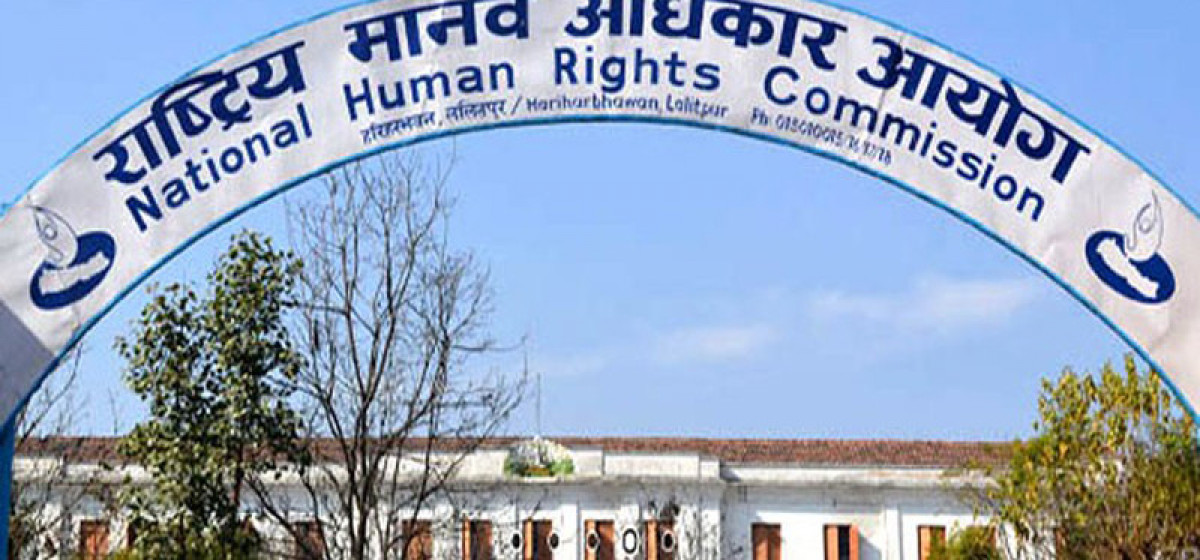KATHMANDU, Aug 8: Concerned over the provision of community service for war criminals involved in serious human rights violations, the National Human Rights Commission (NHRC) has suggested to the government to ensure a provision of mandatory imprisonment in the transitional law.
The rights body said the provision of community service in the Transitional Justice Related Bill-2018 for those involved in serious human rights violations undermines the norms of transitional justices, depriving the victims of real justice. “Granting amnesty to rights abusers under the pretext of community service is not in line with the norms of transitional justice. The international community will not accept such provision nor is the provision in accordance with the past Supreme Court verdicts,” said NHRC Secretary Bed Prasad Bhattarai.
Defining rape and other sexual violence, torture, extra-judicial killings and enforced disappearance as serious human rights violations, the draft bill declines to allow amnesty to the committers of these offenses. The bill, however, has a provision of sending the perpetrators to community service contrary to the existing criminal provision of sending rights abusers to jail.
Govt urges to address concerns surrounding NHRC

As per the bill, perpetrators of kidnapping, mutilation, looting of private property and internal displacement can, however, be granted amnesty if the perpetrators disclose the truth and apologize to the victims themselves.
NHRC argues that asking war criminals involved in serious human rights violation to do community service will not ensure justice to their victims. “The community service provision for serious human rights violators will not ensure peace in the long run,” said Secretary Bhattarai.
In a consultation organized by the NHRC victims, human rights workers, lawyers and other stakeholders concerned had opposed the provision of community service for rights abusers. Following consultations, suggestions were forwarded to the Office of the Prime Minister and law ministry.
NHRC has suggested to the government to seek consent from the victims on key issues while dealing with the war-era cases including the provision of community service for rights violators.
Also, the NHRC has urged the government to avoid the provision of providing complaints filed by the victims and other evidences to the transitional mechanism--Truth and Reconciliation Commission and Commission of Investigation on Enforced Disappeared Persons, the entities set up to settle war-era cases.
“Complaints were registered at the commission at the cost of not disclosing to anyone and we have collected evidences ensuring victims to respect their privacy,” said Secretary Bhattarai, “So, we can’t handover evidences to those entities because it will be against the spirit of our constitution as well.”
Bhattarai argued that the NHRC will take up cases of rights violations, investigate into them and recommend for further action but it can’t handover complaints or evidences of rights violation to other entities. “If such evidences are to be handed over to the TJ bodies, the constitution has to be amended,” he said.

































